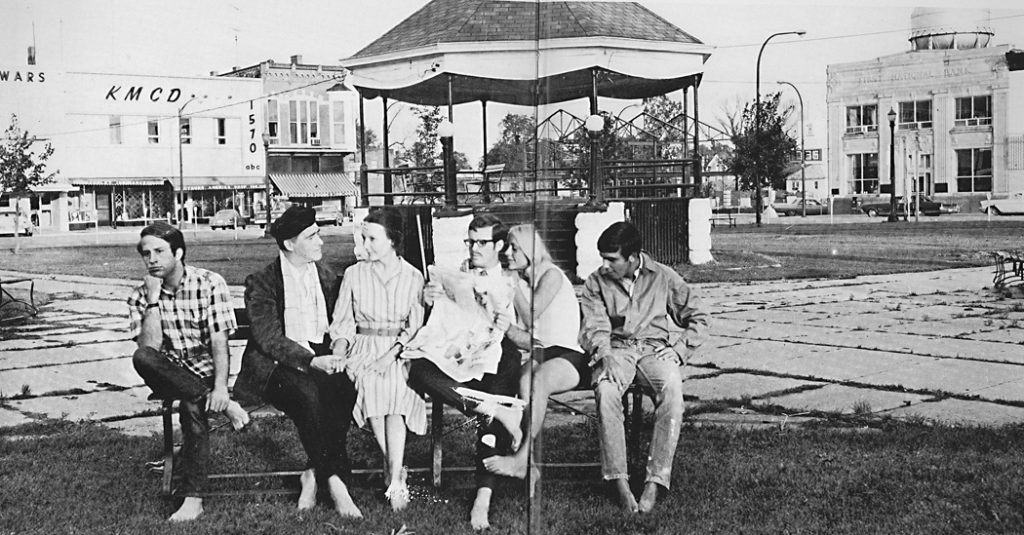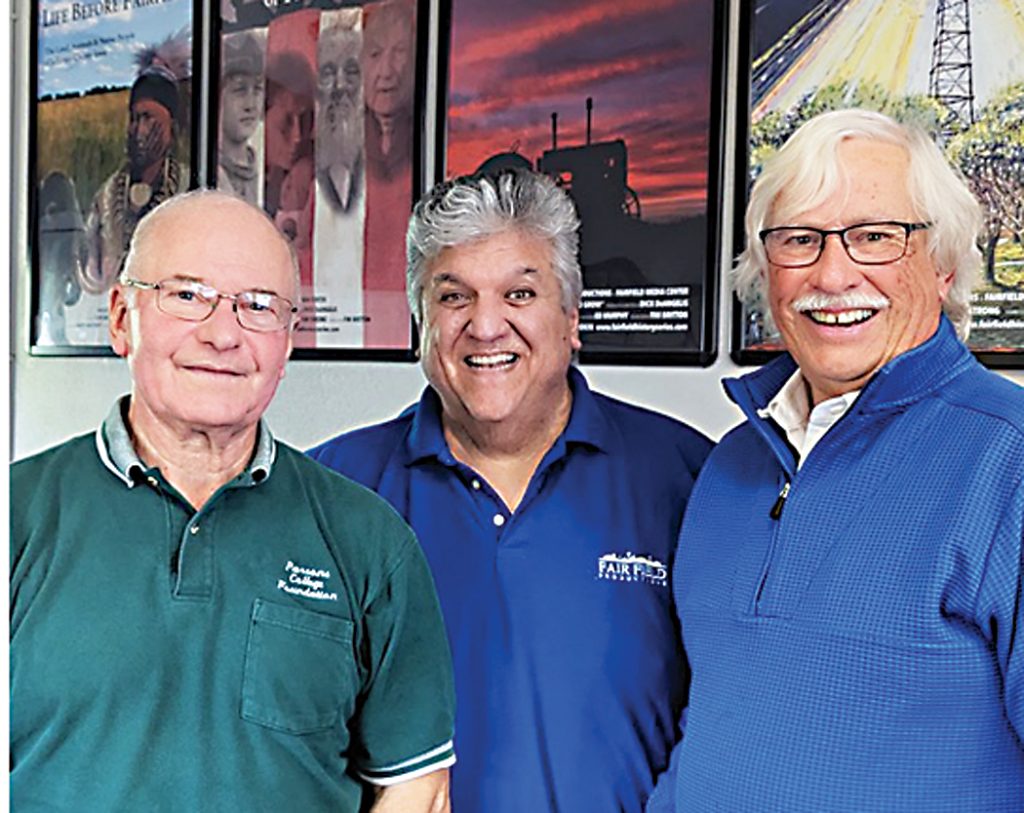
The town is abuzz as Fair Field Productions anticipates the premiere of its latest film, Parsons: The School That Changed the Rules, a documentary two years in the making. The movie aims to capture the 98-year story of the former Fairfield college from a multitude of voices and perspectives—most notably those who taught there and those who attended. This film is the fifth in the award-winning Fairfield History Series that has thrived under the vision of producer and director Dick DeAngelis and his dedicated team.
Integral to the making of the film, explains DeAngelis, was “a team of Parsons alums, former professors and administration, and people who researched Parsons and some of its innovations. And then we had our typical cast—including the film’s historical director, Lawrence Eyre—who did deep research locally on what happened way, way back.”
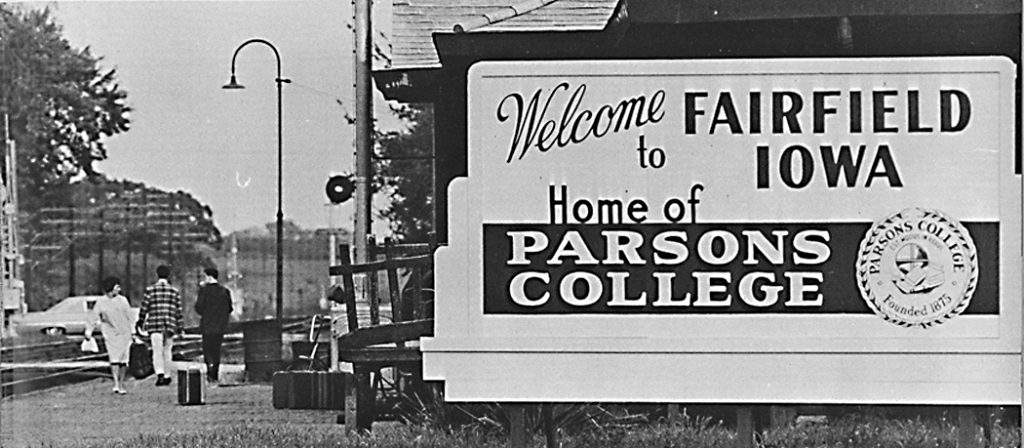
Some of Parson’s earliest history was painstakingly gleaned from the college’s digitally preserved board-meeting minutes dating as far back as the 1870s.
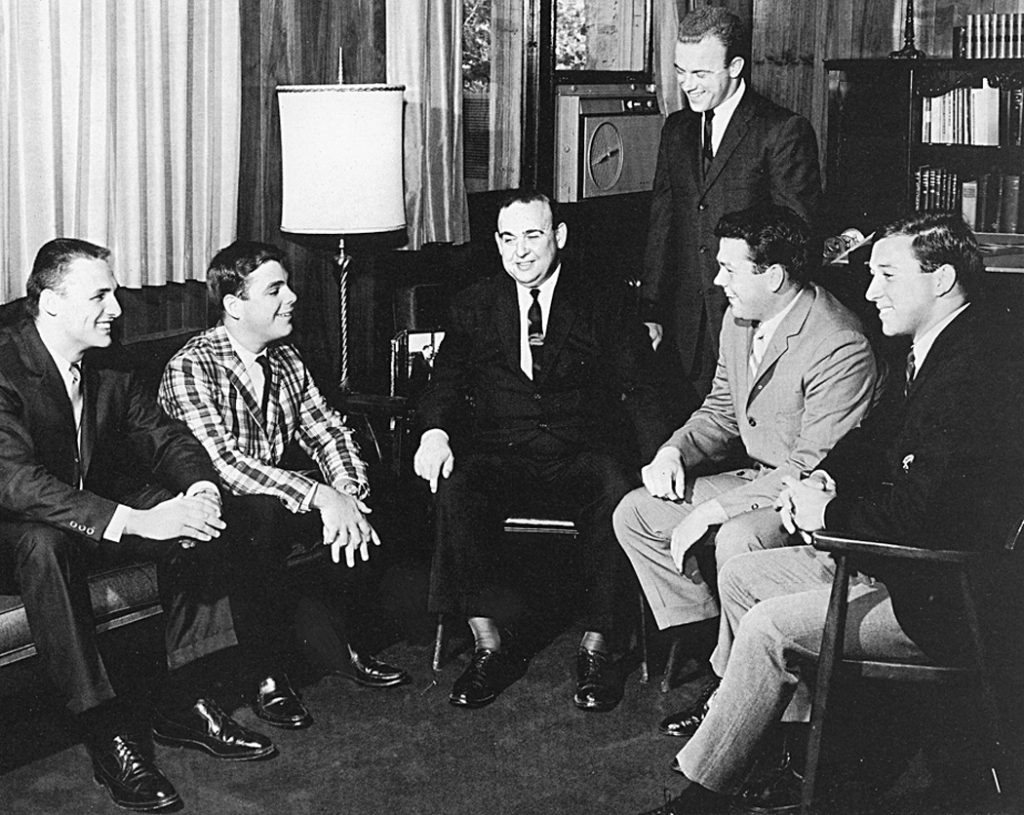
Posted across the walls of DeAngelis’s home office and production studio is a huge handwritten timeline—the spine of Parsons College’s history—beginning in 1875 with its founding figures, followed by an unfolding sequence of key events; pivotal characters like changemaker Daniel Jenkins, athletics enthusiast O.B. Nelson, and President Dr. Millard G. Roberts, who brought Parsons back from bankruptcy in 1955; along with notable shifts in the culture and the curriculum—all innovatively portrayed in the film against a backdrop of American and world history.
Part of DeAngelis’s goal with this documentary was to pick apart some of the myths that are propogated about Parsons—and to dig in deeper to get at the heart of its story.
“If I asked you, what do you know about Parsons?” says Dick, “most people who aren’t associated with the college would say, ‘Party school, drop-out U, they crashed and burned,’ right? But if you’re a Parsons grad, you might say other things: ‘Innovative college, we got a raw deal in the end, but it really was an amazing school,’ something like that. So the question is: which one is the truth? And the answer is they both are. And we go into the details. In its lifetime, this college had all kinds of interesting things happen!”
“Did you know, for instance, that the school began as a men’s Presyterian college?” asks DeAngelis. “But women showed up to register, so they said, okay, we’re co-educational!”
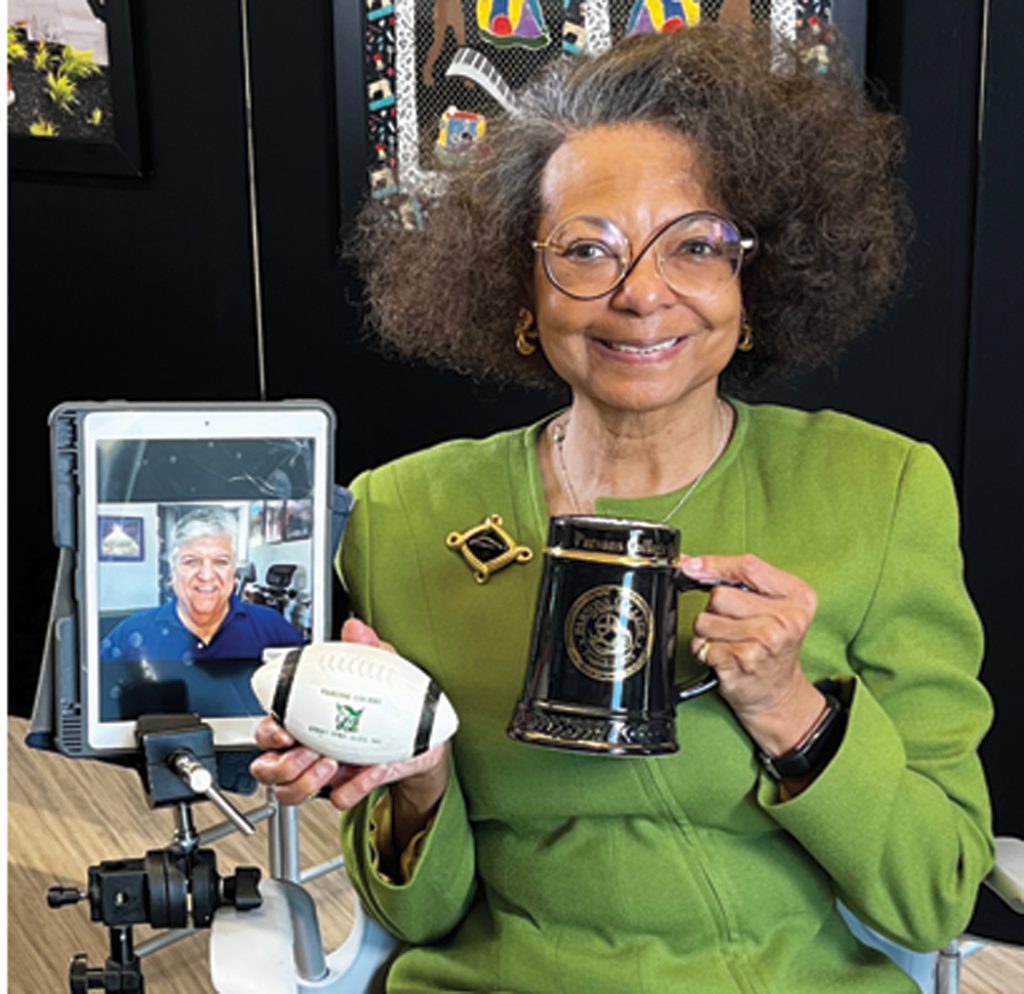
The stories are rich and varied, poignant and pivotal. They capture personal successes, big risks and great rewards, Civil Rights struggles, humorous tales of freshman hazing, and accounts of fervent community support—all depending on whom you ask. From its 1960s heyday to crisis moments over the years and everything in between, audiences can expect an exciting rollercoaster ride pieced together with hard-to-come-by historical archives, reenactments by local talent, and personal accounts captured firsthand.
In the timeline of the film, “the World War II era is about where we begin weaving in the interviews of people who were of that generation,” says Dick. “We interviewed one woman from the class of 1938! Edith Jordan, who was 103 years old at the time. Edith is one of three people we interviewed over the past few years who have since passed on.” Dick and his team interviewed over 40 people, all told.
“One of the jobs that we have, over and above presenting entertaining and interesting historical perspectives, is preserving these interviews that end up being priceless for the community to have forever.” Fair Field Productions has invested in a 120-terrabyte drive that allows DeAngelis and his team to securely preserve their films and footage—including these invaluable community stories in their entirety, with the goal of making the archived interviews publicly accessible.
Unique to this film in the series—something DeAngelis is particularly thrilled to share and made possible through grant funding—is that the Parsons soundtrack is almost entirely composed of original music penned and played by 15 local and regional musicians (Jimmy Ryan, Dustin Busch, and many, many more) under the “genius” coordination of Tim Britton.
“And we have a unique and dramatic conclusion,” says DeAngelis. “It’s going to be an experience just to be there through the end of the film, and we’re really hoping people enjoy that.”
The premiere screenings of Parsons will be held October 6–8 in the Sondheim Theatre, 200 N. Main St., in Fairfield, in conjunction with the Parsons College Golden Jubilee Reunion. Friday and Saturday showings start at 7:30 p.m., with a Sunday matinee is at 2:30 p.m. All showings are free (donations gratefully accepted) and open to the public.
